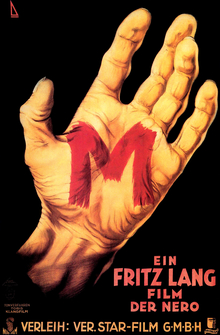A blog formerly known as Bookishness / By Charles Matthews
"Dazzled by so many and such marvelous inventions, the people of Macondo ... became indignant over the living images that the prosperous merchant Bruno Crespi projected in the theater with the lion-head ticket windows, for a character who had died and was buried in one film and for whose misfortune tears had been shed would reappear alive and transformed into an Arab in the next one. The audience, who had paid two cents apiece to share the difficulties of the actors, would not tolerate that outlandish fraud and they broke up the seats. The mayor, at the urging of Bruno Crespi, explained in a proclamation that the cinema was a machine of illusions that did not merit the emotional outbursts of the audience. With that discouraging explanation many ... decided not to return to the movies, considering that they already had too many troubles of their own to weep over the acted-out misfortunes of imaginary beings."--Gabriel García Márquez, One Hundred Years of Solitude
Search This Blog
Showing posts with label Otto Wernicke. Show all posts
Showing posts with label Otto Wernicke. Show all posts
Wednesday, May 11, 2016
M (Fritz Lang, 1931)
Point of view is everything in a thriller. Let the viewer see events through the wrong eyes, and suspense goes out the window. The remarkable thing about Lang's great thriller is that the point of view changes so often. It starts with that of anxious parents, knowing that a child-killer is on the loose, then narrows to one particular parent, waiting for her daughter to come home from school for lunch. But then we see the object of her fears, her daughter, making contact with a strange man, and our suspense builds as we return to the worried mother. But as strongly as we sympathize with the mother, we also eventually learn to focus our anxieties elsewhere: on the beleaguered police, on innocent victims of people's suspicions, on the criminal underworld harassed by the police, and eventually even on the murderer himself. There are even moments when, as he becomes the object of the manhunt, trapped in the attic of a building swarming with the criminals in search of him, we find ourselves semi-consciously rooting for him to escape. Then we find ourselves rooting for the criminals to capture him and to escape being caught by the cops. And then, when he is put on trial by the criminals, we root for the police to arrive and rescue him. In short, the movie is a study in the ways in which sympathy can be manipulated. Lang and his soon-to-be-ex-wife Thea von Harbou wrote the screenplay, and the atmosphere of the film is superbly maintained by the cinematography of Fritz Arno Wagner and the sets of Emil Hasler and Karl Vollbrecht. But none of it would work without the presence of some extraordinary performers, starting with Peter Lorre as the sniveling, obsessed Hans Beckert: a career-defining performance in many ways, considering that Lorre had been known for comic roles on stage before Lang made him a movie star. Then there's Otto Wernicke as Inspector Lohmann, whose performance was so memorable that Lang brought him back as the same character in The Testament of Dr. Mabuse (1933), stereotyping Wernicke as a cop for much of his career. And Gustav Gründgens, the imperious leader of the criminal faction, who later became identified with the role of Mephistopheles in stage and screen versions of Goethe's Faust (Peter Gorski, 1960) -- not to mention in Klaus Mann's 1936 novel, Mephisto, based on Gründgens's embrace of the Nazis to advance his career.
Monday, May 9, 2016
The Testament of Dr. Mabuse (Fritz Lang, 1933)
Lang's Dr. Mabuse the Gambler (1922) hardly needed a sequel, but the director makes it worth our while by adding sound to the concoction. Take, for example, the segue from the tick ... tick ... tick of the timer on a bomb to the chip ... chip ... chip of someone removing the shell from a soft-boiled egg. It's a witty touch that not only eases tension with laughter, but also demonstrates the prevalence of the sinister in everyday life. Hitchcock, it is often noted, learned a great deal from Lang. Mabuse (Rudolf Klein-Rogge) is more of a felt presence than a visible one in this version, confined as he is to an insane asylum where he supposedly dies, only to haunt not only the inmate Hofmeister (Karl Meixner) but also, and especially, the head of the asylum, Prof. Baum (Oscar Beregi Sr.), who is compelled to carry out Mabuse's plans for world domination. As in the 1922 film, there is a doughty policeman, Commissioner Lohmann (Otto Wernicke), who is determined to foil Mabuse's nefarious plans. Wernicke, whose character Lang brought over from M ( 1931), is not as hunky as the earlier film's von Wenk (Bernhard Goetze), so Lang and screenwriter Thea von Harbou add to the mix a young leading man, Gustav Diessl, who plays Thomas Kent, an ex-con who escapes from Mabuse's snares to aid Lohmann in trapping Baum in his efforts to fulfill Mabuse's plot. It's extremely effective suspense hokum, not raised quite to the level of art the way the 1922 film was, but still a cut above the genre. As is usually noted, this was Lang's last film in Germany. It was suppressed by the Nazis, ostensibly because it suggested that the state could be overthrown by a group of people working together, but perhaps also because of its suggestion that world domination might not be such a good thing.
Subscribe to:
Comments (Atom)

